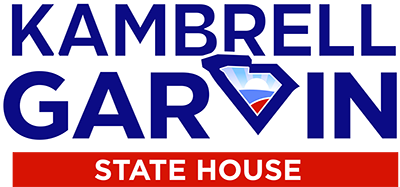On Tuesday, January 8, 2019, lawmakers gathered in Columbia to commence the 123rd South Carolina General Assembly. On Wednesday, the General Assembly took part in ceremonies for the inauguration of the Governor, the Lieutenant Governor, and the state’s other constitutional officers. During the week, committees began their work on legislation to report out for consideration by the full House.
The House of Representatives approved S.2, relating to the PRESIDENT OF THE SENATE in the South Carolina General Assembly, and enrolled the bill for ratification. The legislation brings state statutes into conformity with the amendments to the South Carolina Constitution approved by voters and ratified in Act 214 of 2014 to allow for the joint election of the Governor and Lieutenant Governor. These changes, which allow a gubernatorial candidate to select a running mate, have also eliminated the legislative duties of the Lieutenant Governor. With the Lieutenant Governor no longer serving as the presiding officer of the Senate, the Senate elects a President from its membership. This legislation amends numerous statutes to reflect the revised roles of these officers.
The House approved and sent the Senate H.3630, a joint resolution that provides a three-month EXTENSION IN REAL PROPERTY TAX PENALTIES FOR WORKERS LEFT UNPAID DURING THE FEDERAL GOVERNMENT SHUTDOWN. For property taxes due on January 15, 2019, this legislation provides a three-month delay in the penalty schedule for unpaid property taxes and assessments that applies to real property owners who are federal government employees who have not been paid their salaries since the shutdown began on December 21, 2018. The extension also applies to federal government contractors who have lost a substantial portion of their income because of the shutdown.
The House of Representatives approved and sent the Senate H.3697, a joint resolution authorizing ALTERNATE PROGRAM COMPLETION OPTIONS FOR STUDENTS IMPACTED BY THE CLOSURE OF SIX EDUCATION CORPORATION OF AMERICA, INC., HIGHER EDUCATION PROVIDERS in South Carolina in 2018. This legislation responds to the December 2018 announcement from the Accrediting Council for Independent Colleges and Schools (ACICS) that it was withdrawing accreditation from the Education Corporation of America, Inc. (ECA). The loss of accreditation prompted closures of ECA private higher education providers across the nation, including six ECA locations in South Carolina. The closure of the Virginia College campuses located in Charleston, Columbia, Florence, Greenville, and Spartanburg, and the closure of the Golf Academy of America in Myrtle Beach left approximately one thousand South Carolina students without an opportunity to complete their academic programs. This legislation provides that, notwithstanding the state regulation that requires a student to earn at least twenty‑five percent of a higher education institution’s program curriculum requirements through instruction by the institution awarding the degree, the Commissioner on Higher Education is provided temporary authority to grant institutions of higher learning in this state the flexibility to use teach‑out options as needed in rare circumstances to facilitate program completion by these former Education Corporation of America, Inc., students of South Carolina who were close to completing their academic programs when the ECA campuses closed in 2018.
The House approved and sent the Senate H.3662, a bill officially ADOPTING REVISED CODE VOLUMES 3 AND 4 OF THE SOUTH CAROLINA CODE OF LAWS.
The House adopted and sent the Senate H.3012, a concurrent resolution to express the belief of the General Assembly that South Carolina’s schools and school districts should utilize the EDUCATION RATE PROGRAM OF THE FEDERAL COMMUNICATIONS COMMISSION (E‑RATE) established by the Telecommunications Act of 1996 which provides discounts on Internet access and telecommunications services for schools and school districts with higher poverty levels in their student population that would be of great benefit to these students.
If you have a comment or opinion concerning the matters discussed in this report, or if I may be of assistance to you at any time, please feel free to call your legislative office in Columbia (803-212-6875); my Richland Legislative Delegation Office (803-576-1908); or write P.O. Box 292434, Columbia, SC 29229. Thank you for the opportunity to serve you in the House of Representatives.
KHG/jhm
